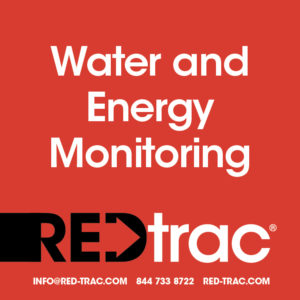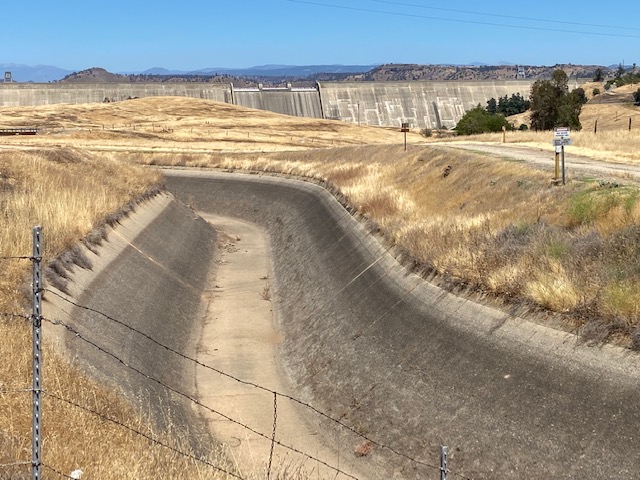At its regular meeting on December 20, the last of the year for 2022, the Madera County Board of Supervisors took up GSA business beginning at 12:10 p.m. Chair Tom Wheeler was officiating at his final meeting, since he did not run for reelection from District 5 after a long career on the Board.
A week earlier, the Board had approved a refund of GSA per acre property fees in the Madera ($246) and Delta-Mendota ($138) Subbasins that had come in on or before the tax deadline of December 10, as a result of the temporary injunction granted by a judge here in Madera Superior Court. Tax collector Tracy Kennedy reported about the process her office would be following. Some 500 to 600 property owners have paid the first installment or both. They will be issued a credit against their spring tax bill, which is the second installment for annual property taxes. These amounts will be audited and verified for accuracy as new tax bills are prepared and sent to affected property owners. Kennedy said the process should take about 90 days, a procedure unprecedented in the county for removing a direct charge like this. The supervisors offered their support for this procedure.
Land IQ Now Available
Coming next to the podium, Stephanie Anagnoson, county director of water and natural resources, presented a new option for growers to monitor their compliance with water allocations. The services of Land IQ will now be available for 2023. It will be an option along with Irriwatch, the satellite monitoring service. Growers can also choose to use their own properly installed, maintained and verified flow meters. She said Land IQ provides monthly reports to subscribers based on weather data collected from monitoring stations around the region. She said 28 other GSAs were using its services. She pointed out that Irriwatch uses almost real-time results from satellite monitoring that owners can access at any time. She said that Irriwatch results had been adjusted this past fall based on updated algorithms, necessitated by distortion of images of bare ground in the very high heat of this past summer. Land owners can appeal results from either service if they have properly verified flow meters in place. She said if the Board approves, notices will go out very soon to growers notifying them of the need to choose a single option for their farm units.
Directors were invited to comment with Supervisors David Rogers and Robert Poythress thanking Anagnoson for providing the three choices, including the new option of Land IQ.
With public comment invited, Christina Beckstead, executive director of the county Farm Bureau, asked when folks would need to opt in. She asked if there would be a trial period or if the January 1, 2023, deadline required a choice.
Mark Peters, who said he is a “white area” grower, acknowledged that while he had been critical of Irriwatch results on his farm, the adjustments made in the fall brought ETAW figures more in line with his flow meters. He expressed the hope that there would be no further adjustments that distorted results. He did ask if he could use his flow meter results on one parcel, with Irriwatch on the other two.
Speaking for the Madera Ag Water Association group, Noah Lopez said he appreciates the fee refund/credit approach. He said he also appreciates the new third option for monitoring water use. He said since growers have been paying the administrative fee for Irriwatch, he asked why they couldn’t continue to monitor results. Supervisor Brett Frazier commented that an appeals process was available for results from both Irriwatch and Land IQ.
Anagnoson confirmed that results from the use of approved flow meters could be used to appeal data from either Irriwatch or Land IQ. She said a letter is ready to go out “tomorrow” (December 21) saying a choice must be made by January 1st. She said that the same method must be used for the entire farm unit for the calendar year.
She said that people had come to her office asking for help evaluating the different systems but that her department is not staffed to allow that kind of individual consultation. She said the website “Open ET” can be used to compare results of ten different algorithms, including those of Irriwatch and Land IQ.
With no further comment, the Board unanimously approved these arrangements for growers to monitor water use, being able to choose one of three methods.
Domestic Wells
Next up was a report from Director Anagnoson about the domestic well mitigation program being implemented in the Chowchilla Subbasin. She explained that a similar program is being developed for the Madera Subbasin but that it is about six months behind Chowchilla, which is going into effect January 1, 2023. She said owners of domestic wells impacted by dropping groundwater levels caused by pumping for agriculture could apply for funds from the GSA for as much as $30,000 for repairs and drilling on an individual well. She explained that the Chowchilla Water District will accept applications and administer the program. While there is no income limit, a well owner must submit an assessment preferably by an approved contractor along with a refundable fee of $100. A property owner also must complete a well education course that is available free and online. She said because the Chowchilla Subbasin owners had defeated the 218 fees, funding will come from growers who are organizing to assess and collect fees. In reply to the concern that only growers are providing the mitigation fees, it was explained that an immediate cessation of ag pumping would be far too economically damaging, so this support for impacted domestic wells is the compromise. It also noted that domestic well mitigation is a high priority for DWR’s approval of GSPs. With no public comment, the Supervisors unanimously supported this plan.
complete a well education course that is available free and online. She said because the Chowchilla Subbasin owners had defeated the 218 fees, funding will come from growers who are organizing to assess and collect fees. In reply to the concern that only growers are providing the mitigation fees, it was explained that an immediate cessation of ag pumping would be far too economically damaging, so this support for impacted domestic wells is the compromise. It also noted that domestic well mitigation is a high priority for DWR’s approval of GSPs. With no public comment, the Supervisors unanimously supported this plan.
It’s interesting to note here that a public hearing on a zoning matter, held by the Supervisors before the start of the GSA meeting, was a clear example of the issues with domestic wells. Residential property owners were objecting to a ruling by the zoning board to allow a five-acre residential property to be split, allowing a second home. Speaking about their concerns that a new residence, or perhaps, residences would be built, property owners talked about how their wells had gone dry when new almond acreages had gone in close by. They talked about the resulting need for high cost well replacement and water quality improvement, the loss of property values and even homes abandoned because owners couldn’t afford deeper wells. They did not want the Supervisors to allow even two more new “straws” to access precious groundwater.
Fallowing
The next item carried over from the previous week’s meeting was considering of a voluntary land repurposing program. This process involves landowners voluntarily identifying a minimum of 10 acres along with a bid for reimbursement for taking this land out of production and applying no water for at least one year and up to 10 years. Growers would submit a bid to receive an amount per acre. The acceptance of bids, Dutch auction style, would be for the lowest bids, with no set price. Other factors might include the amount of land, the location and the length of time. Property owners would still pay taxes and meet requirements for air quality and weed control.
Consultant Duncan MacEwan of ERA Economics at Davis, Calif., was online to provide a hypothetical example of how the program could work for an individual grower. The concept is that the enrolled land would be taken out of production or used for a crop with lower water demand. The farm unit’s allocation could then be applied to the remaining productive acreage. Demand reduction comes from the overall farm unit meeting its allocation requirement.
In the example he presented, MacEwan showed how all bids up to $485 per acre would be accepted. Bids are accepted based on acreage targets and program funding. Anagnoson noted that the Merced GSA has a program like this.
The challenge here is that with the 218 fees voted down in the Madera Subbasin, there is no immediate source of funding, although grant applications have been submitted. If there is funding, the program would come back to the Supervisors with administrative recommendations.
A LandFlex Program has recently been announced by DWR in which higher reimbursement is available to growers taking land out of production in areas with severe domestic well impacts. GSAs would work directly with farmers to identify land that would reduce pumping impacts to nearby dry wells. Public comment is being accepted and Anagnoson says her department and the GSA will submit such.
With the floor open for public comment here, the Chair recognized Christina Beckstead who asked when bidding process might begin. She asked too if the per acre bid could change in the event of a multi-year bid. She said because the program can’t apply until 2024, could more time be taken for public meetings and consultations?
Grower Mark Peters also returned to the podium saying he hopes that spending on this and other programs won’t be reduced because of the higher well mitigation costs. He also asked if several growers submitted the same bid per acre, how would a decision be made among them. What will be the other criteria?
Grower Mickey Basra identified himself with 300 acres north of Madera. He asked if he took almond acreage out of production could he plant something with lower water demand.
Mark Nakata came to the podium, identifying himself with the California United Water Coalition. He referred to a letter he had sent to the Supervisors. He said both the short term and long term costs of their programs have to be considered. He said there are a lot of reasons for over pumping, saying, “We won’t solve the problem ourselves because we didn’t create it ourselves.” He says his group wants to work “collaboratively.”
Supervisors were asked for final comments. Rogers said that the programs being put in place in the GSA “didn’t come from nowhere,” and have been under discussion since as early as 2013. He said input from farmers has been important all along. Supervisor Frasier agreed, saying the option to offer Land IQ is just the most recent example of the Board responding to input.
Supervisor Poythress then offered a stinging rebuke to the Nakata letter, saying not only was it poorly written but included unfounded accusations of favoritism without any examples. He said if the Supervisors did not come up with actions, it would be a dereliction of duty. He said no other group has come up with a plan to safeguard groundwater and therefore agriculture itself. He said continuing to pump groundwater unabated is not a plan. He said he felt he had to respond to this “appalling attack on our Board.”
Director Anagnoson said regarding the proposals that it was important to remember that “perfection is the enemy of the good.” Supervisor Rogers said that every farmer he talks with says there is a water problem. Supervisor Letitia Gonzales added that she thought Christina [Beckstead] and Mark [Peters] brought up valid points.
With that, the Board unanimously approved the VLRP details as proposed and recessed for a late lunch.
DISCLAIMER OF RESPONSIBILITY; Waterwrights strives to provide clients with the most complete, up-to-date, and accurate information available. Nevertheless, Waterwrights does not serve as a guarantor of the accuracy or completeness of the information provided, and specifically disclaims any and all responsibility for information that is not accurate, up-to-date, or complete. Waterwrights’ clients therefore rely on the accuracy, completeness and timeliness of information from Waterwrights entirely at their own risk. The opinions expressed in this report are those of the author and do not represent any advertisers or third parties.
and specifically disclaims any and all responsibility for information that is not accurate, up-to-date, or complete. Waterwrights’ clients therefore rely on the accuracy, completeness and timeliness of information from Waterwrights entirely at their own risk. The opinions expressed in this report are those of the author and do not represent any advertisers or third parties.
ALL RIGHTS RESERVED. Copyright 2022 by WaterWrights.net
Madera County is comprised of three subbasins, designated by the CA Department of Water Resources as critically overdrafted, and “high priority”: (1) the Chowchilla Subbasin; (2) the Madera Subbasin; and (3) a portion of the Delta-Mendota Subbasin. Each of these subbasins submitted a Groundwater Sustainability Plan (GSP) by January 31, 2020. These subbasins are required to achieve “sustainability” by the year 2040. The method by which sustainability will be achieved will be illustrated in the GSP, which was be drafted in partnership by the irrigation district, water districts, cities and Madera County. The Madera County Groundwater Sustainability Agency (GSA) is administered by the Madera County Department of Water and Natural Resources: Stephanie Anagnoson, Director, 200 W. Fourth Street, Madera, CA 93637, (559) 675-7703 x. 2265 or (559) 675-6573. The County of Madera Board of Supervisors is the Board of Directors of the GSAs for the three subbasins. The current board is composed of five members: Robert Poythress, chair, Brett Frazier, Letitia Gonzalez, David Rogers and Tom Wheeler.






























